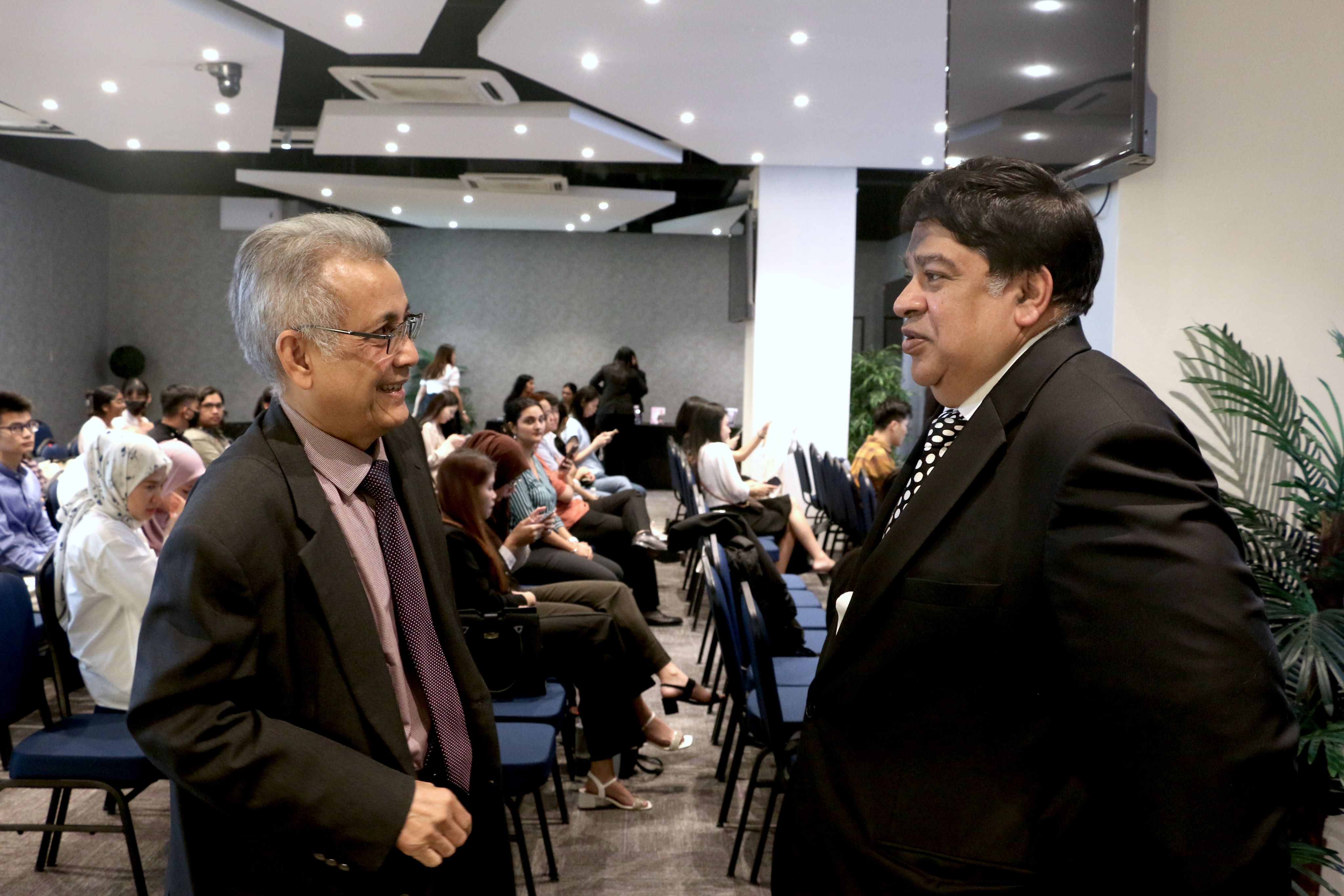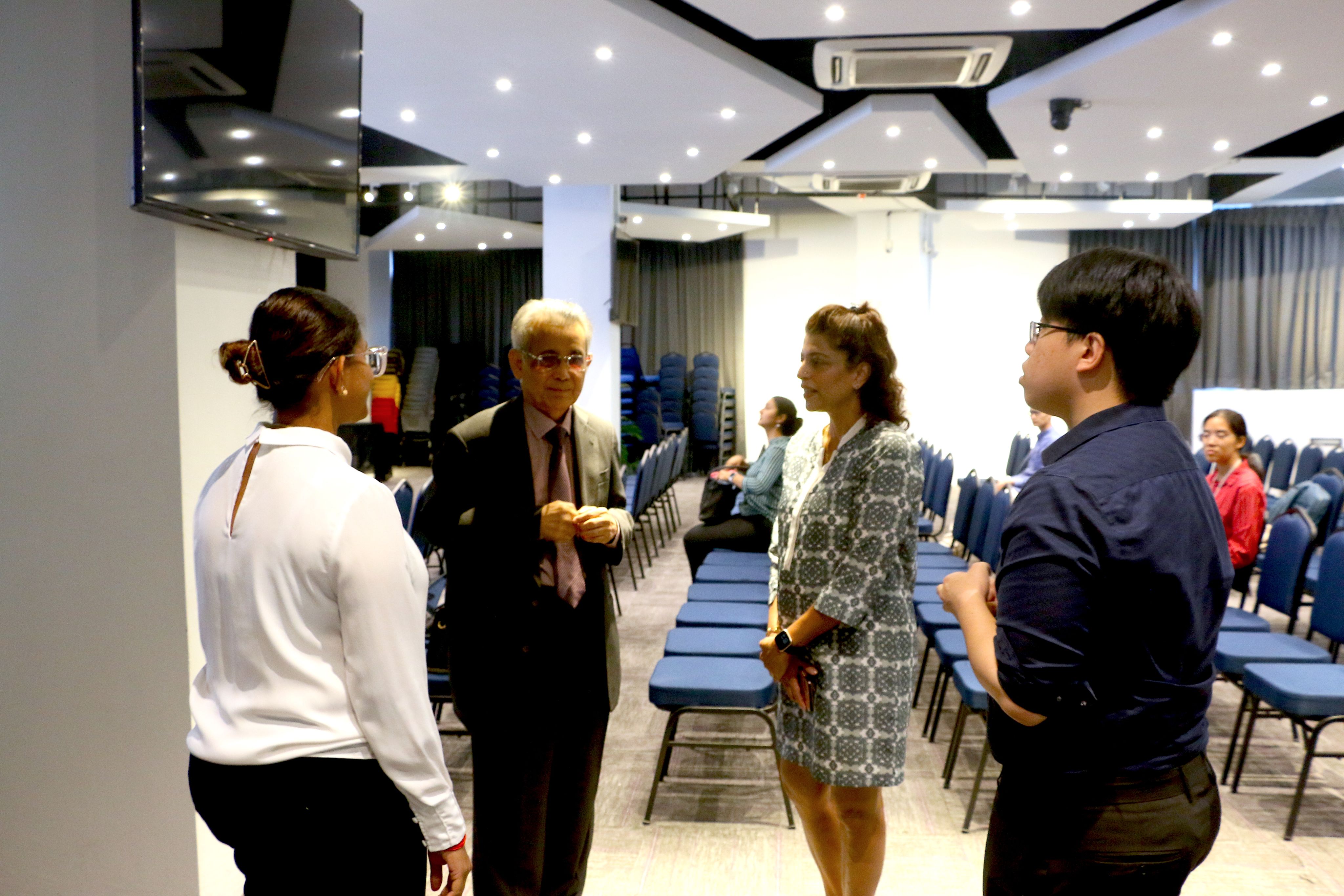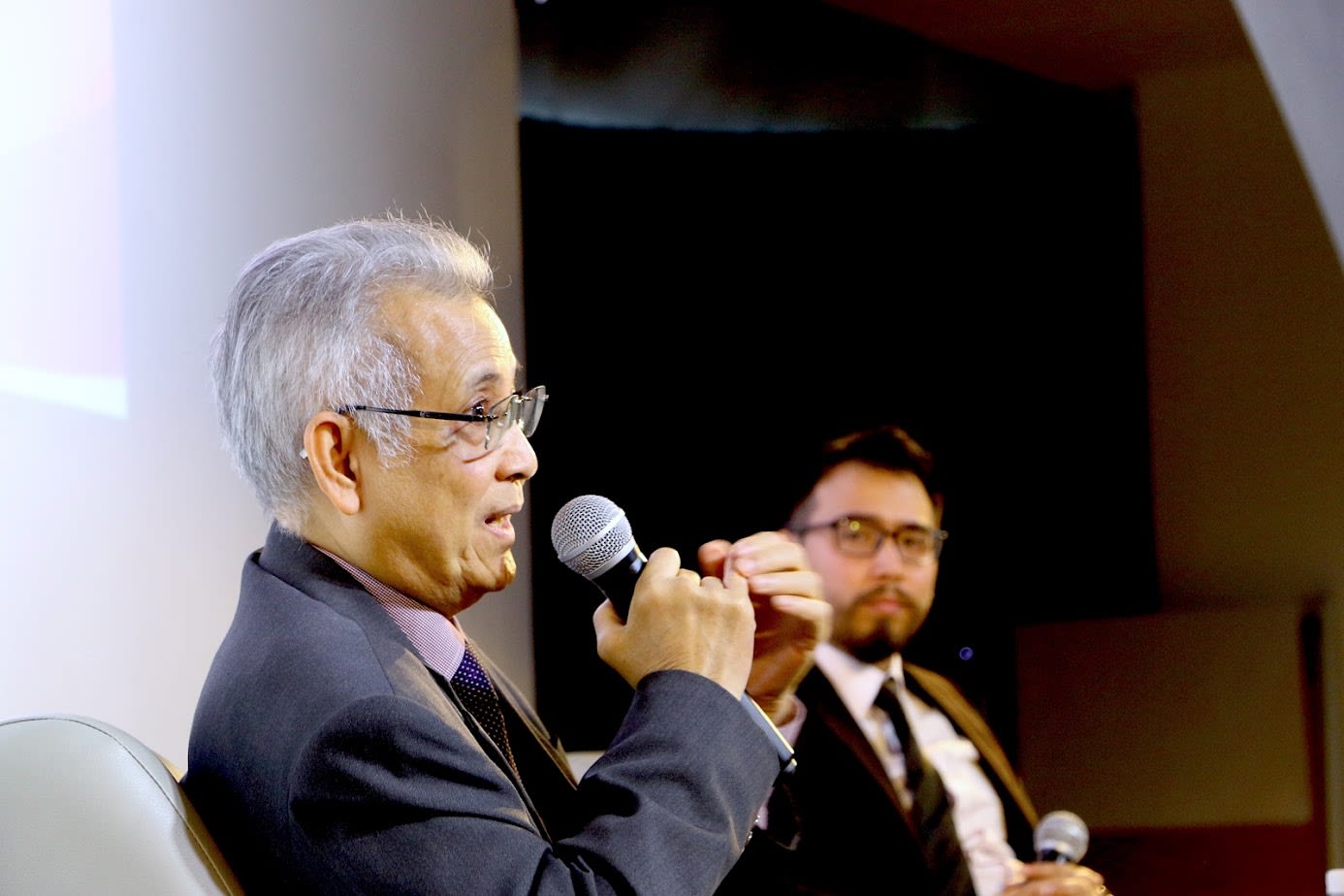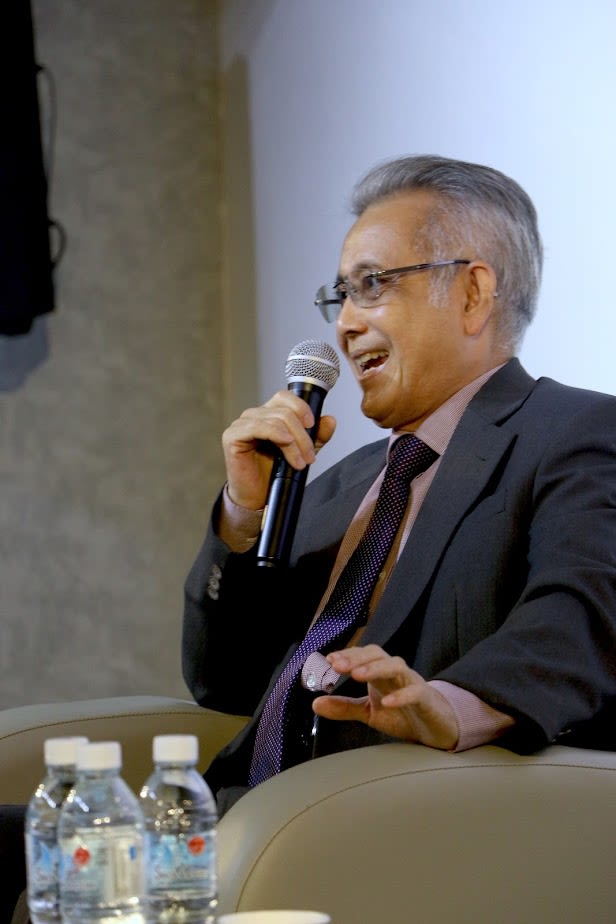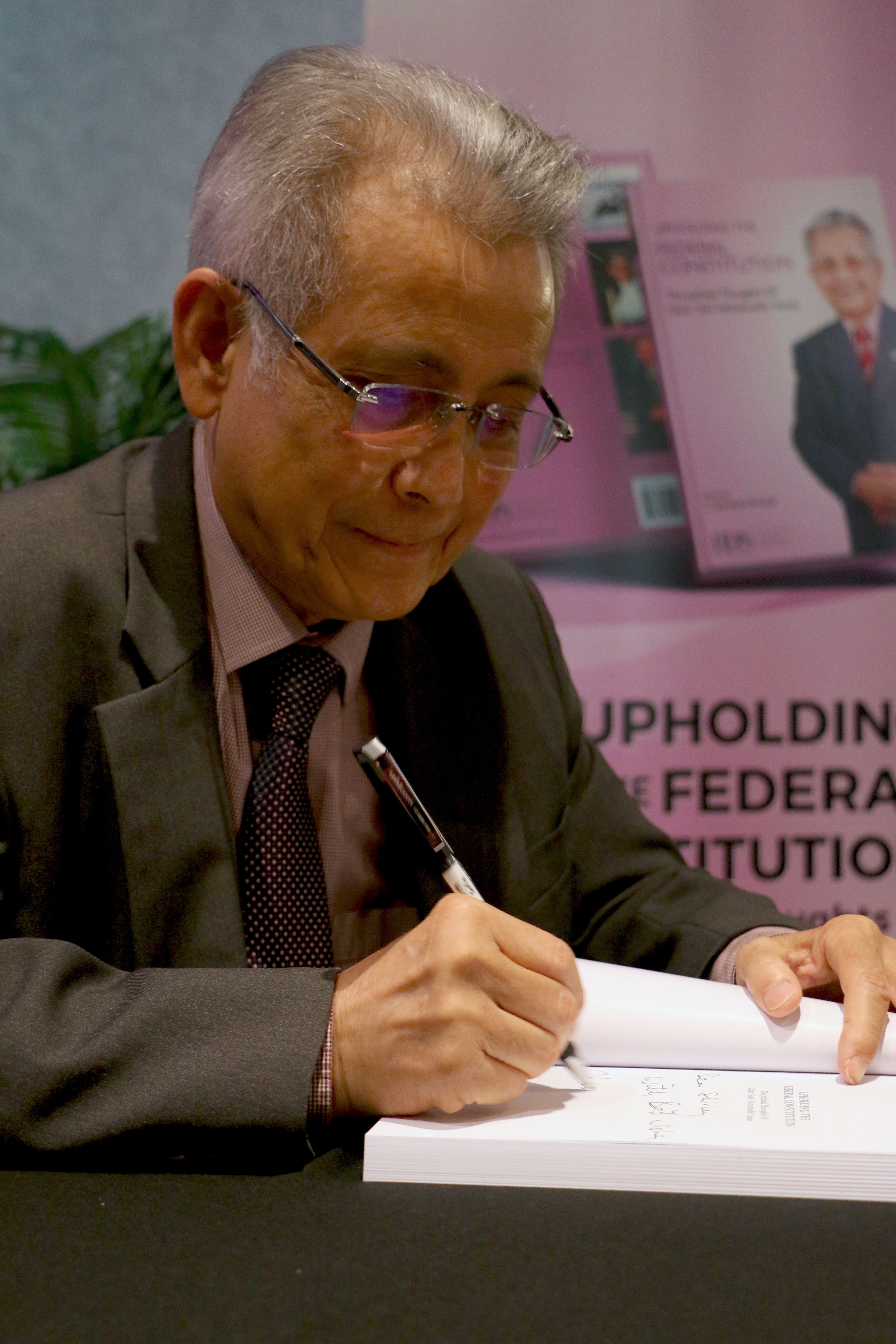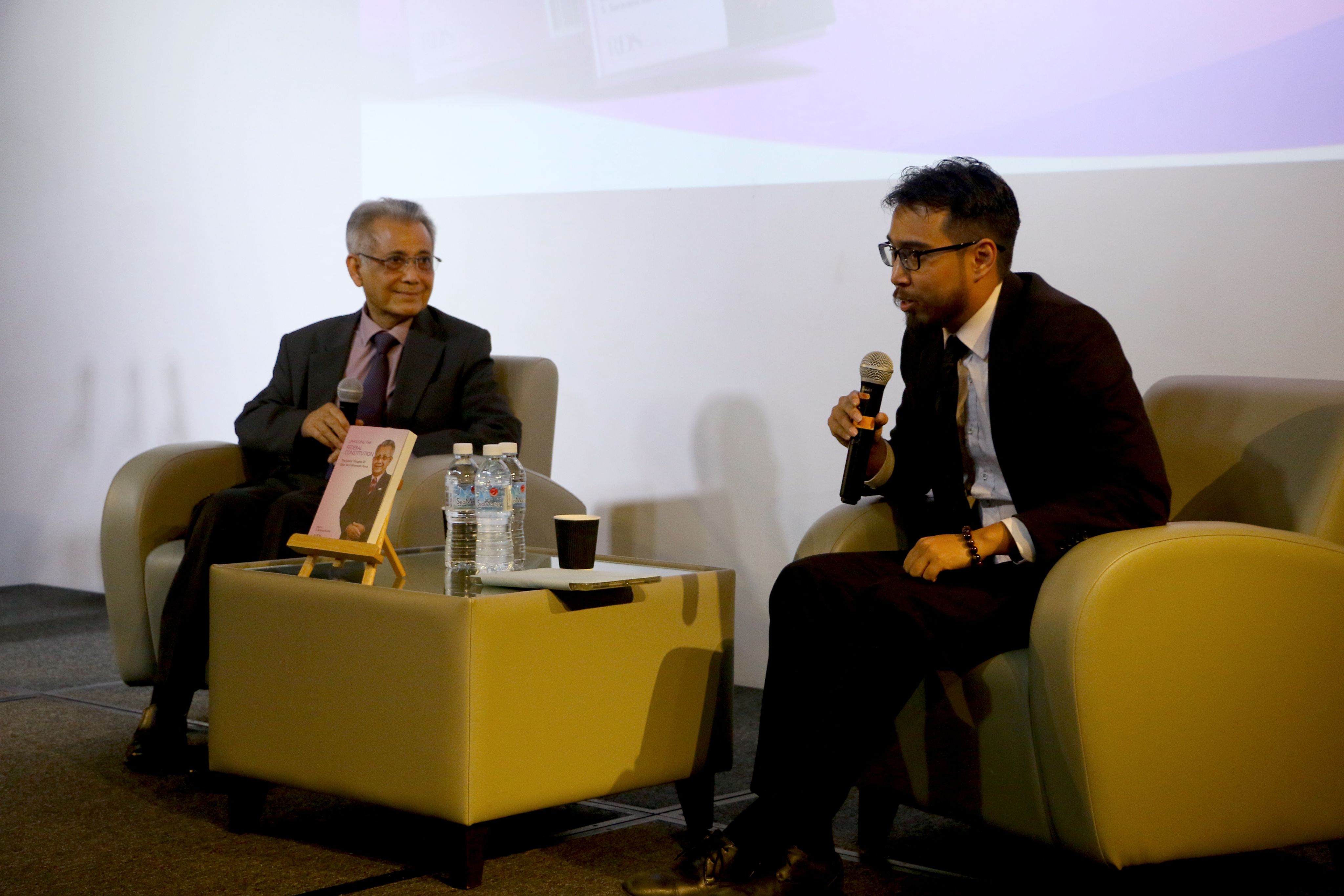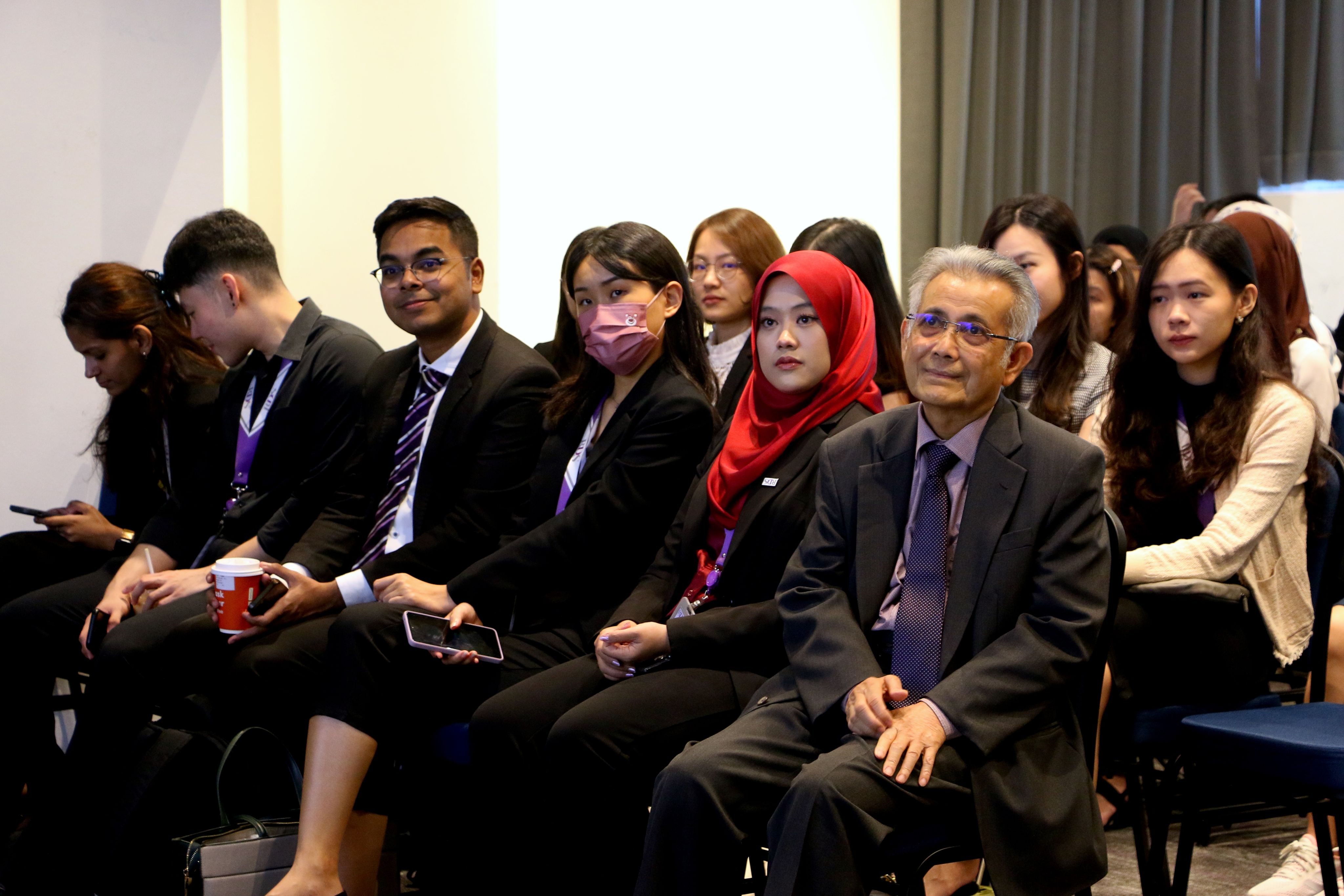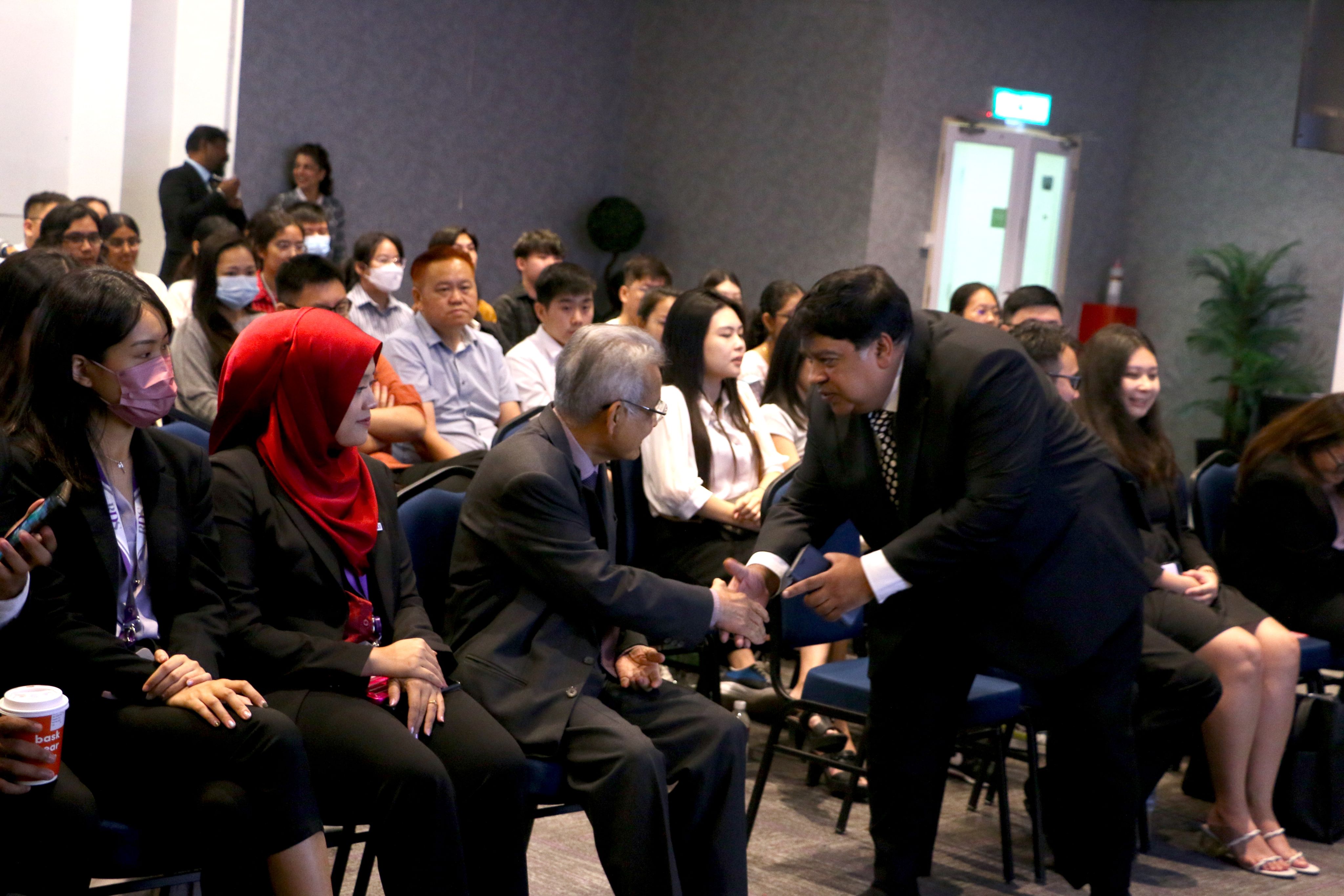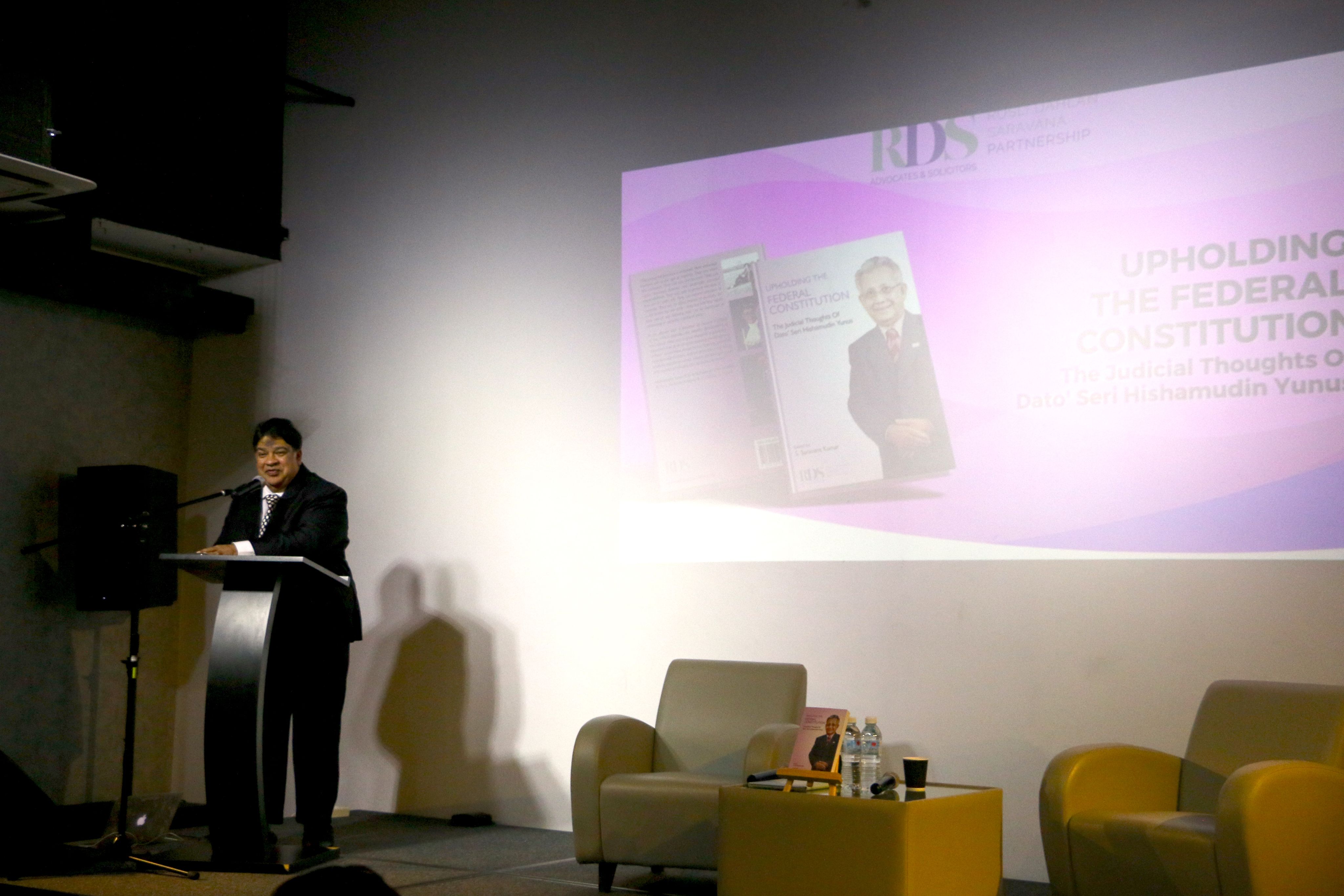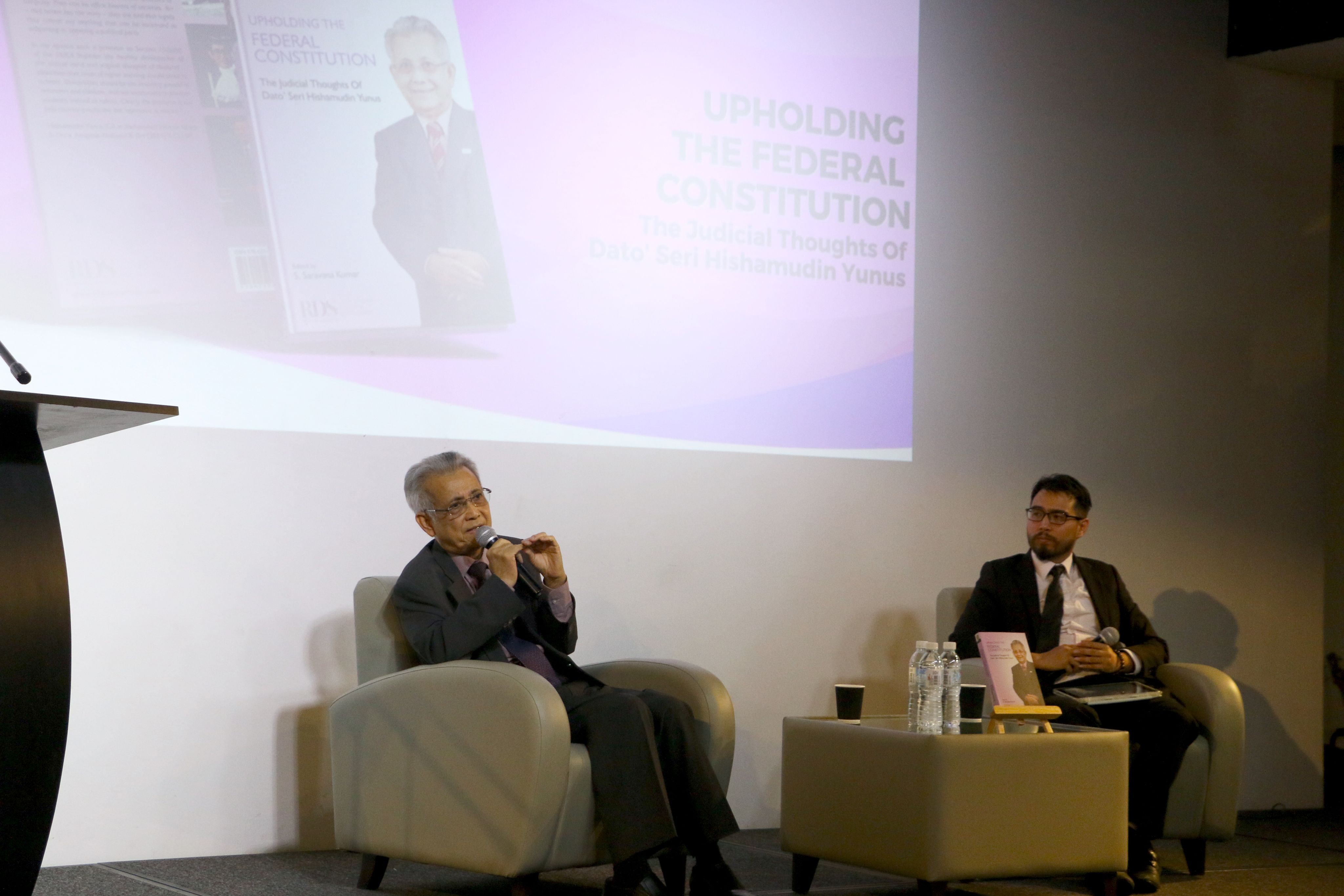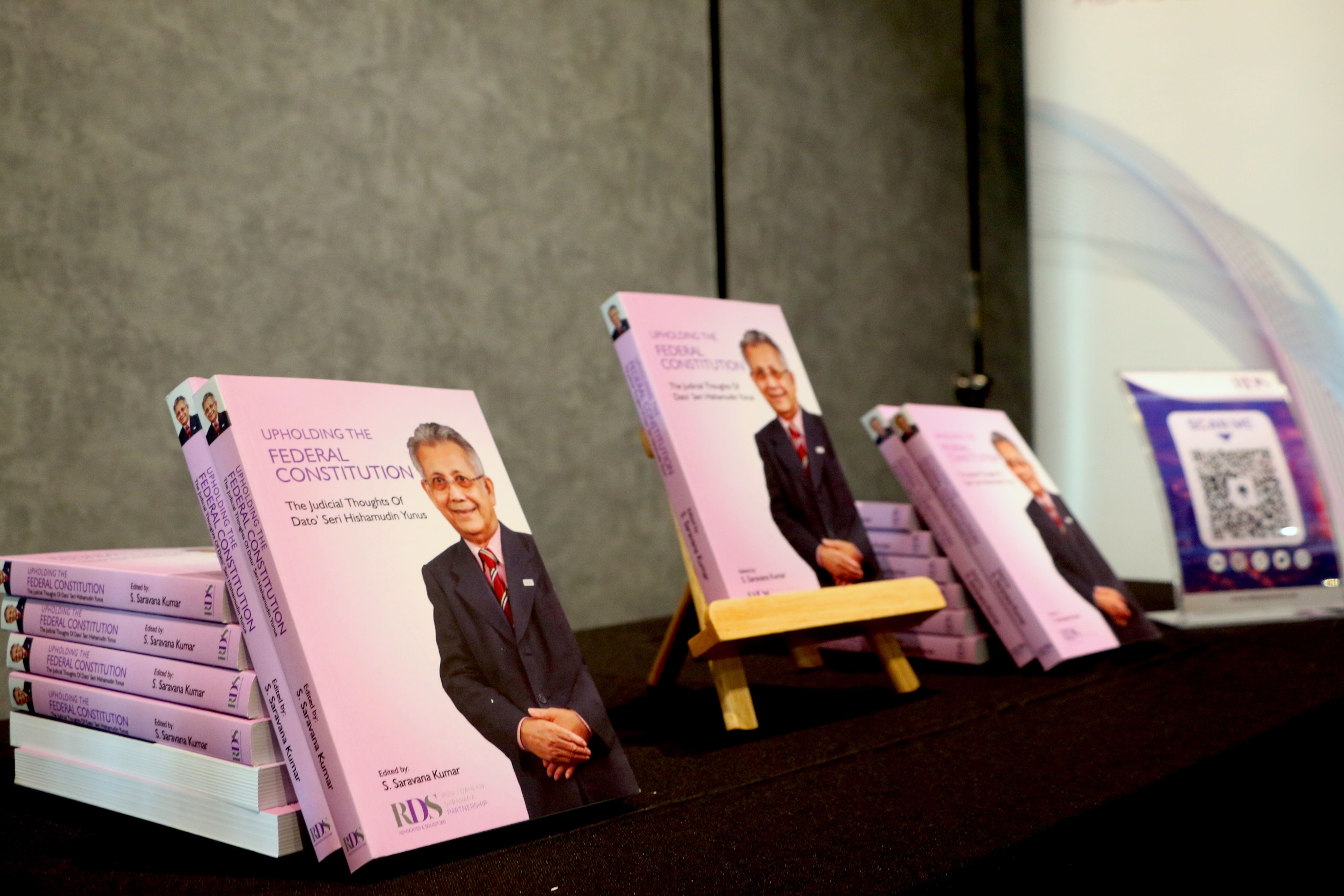Beyond the Bench
with Dato’ Seri Mohd Hishamudin Yunus
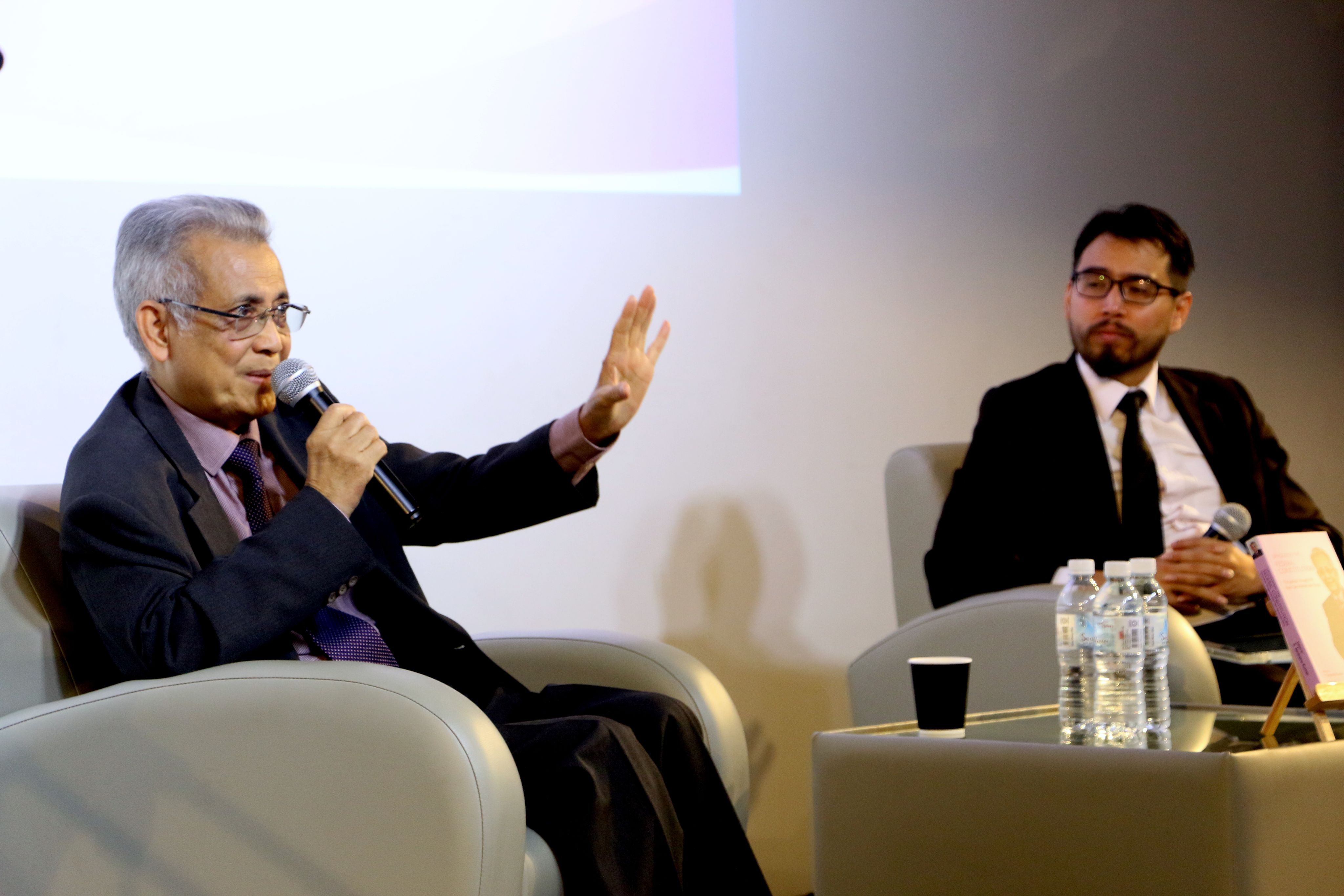
An Introduction to Law
It was a bright and sunny Thursday morning when Dato ‘ Seri Mohd Hishamudin Yunus, the esteemed but now retired Court of Appeal Judge, walked into BACPAC, nestled within our very own PJ campus. His visit was in conjunction with the launch of his most recent book, “Upholding the Federal Constitution”, and to take the opportunity to impart his wisdom and advice to all in attendance.
With more than 65 attendees made up of a melting pot of eager students, experienced alums, and eager outsiders, who quickly shuffled themselves into neat rows of seats; their anticipation was palpable and not easily hidden. Dato Seri took his place alongside his interviewer, and the stage was set for an engaging journey through a life enriched by education, friendships, fashion, and love.
Education, Friendships, Fashion and Love
As Dato Seri humbly greeted the audience, nostalgia hung in the air. His opening remarks painted an optimistic picture, fondly reminiscing about his days at the London School of Economics (LSE). He shared cherished memories of interactions with lecturers and the serendipitous encounter that would shape his future—a meeting with his future wife.
One name that echoed through his recollections was that of Lord Denning, whose direct but straightforward judgements left an indelible mark on the young scholar. Dato Seri also credited his university lecturers for instilling the values of integrity, courage, and knowledge in him.
Meeting His Wife and His Hippie Life
The audience burst into laughter as Dato Seri recalled the influence of his wife, Datin Seri Siti Fatimah, who was then studying at the London College of Fashion, took charge of his fashion sense. She convinced him to bid farewell to his "drainpipe pants" in favour of the trendier bellbottoms, setting the stage for a fashion-forward journey. The impact, whilst not instantaneous, did result in him expanding his shopping expeditions to Barnaby Street, mirroring the changing times. Dato Seri delved into the captivating world of the Hippie movement, Woodstock, and Hari Krishna, painting a vivid picture of the transformative times. He reminisced about the iconic Beatles song, "Lucy in the Sky with Diamonds," which captured the essence of those heady days.
Dato Seri’s Classmates
Dato Seri's journey to LSE involved a shared flight with remarkable classmates from Malaysia. Among them were luminaries like Tan Sri Ariff Yusoof, Tan Sri Appandi Ali (who would go on to become the Attorney General), Datuk Hashim Yusoof, and Tan Sri Hami Umbung, all of whom would leave their mark on Malaysia's legal landscape.
Dato Seri vividly described the state of the United Kingdom at the time, where Malaysian students like him received briefings from MI5 about the potential dangers posed by certain socialist parties. While not touching on the matter for too long, Dato Seri advised the attendees to be mindful of their political affiliations and how vocal they are about them.
Roles That Dato Seri Held
Dato Seri's career path was marked by humility and dedication. He found each role he was assigned equally enjoyable and character-building. His advice to the younger generation emphasised performing to their best, regardless of their position.
Dato Seri's journey was diverse and enlightening, from a magistrate presiding over cases involving friendly goats to a Deputy Public Prosecutor (DPP) handling complex legal matters. He highlighted the shift in workload and appearance when transitioning from a magistrate to a DPP, underscoring the importance of adaptability in one's career. It was at this juncture that the Dato Seri addressed the audience, specifically students aspiring to be judges themselves; he advised them not to keep all their eggs in one basket and to explore all the avenues that the judiciary provided so that they would be well rounded to tackle anything thrown at them.
Experience as a Draftsman
Dato Seri's five-year tenure as a draftsman challenged popular misconceptions about the role. Though many view the role as simply one of writing, according to Dato Seri, even the most minute tasks can build solid perceptions and set the wheels of progress in motion.
It was a gratifying experience that extended beyond grammatical corrections. Clarity of communication was paramount, exemplified by his role in drafting the National Forestry Act 1984. This act would have a tremendous long-term impact on protecting Malaysia’s forests and ecosystem against unscrupulous parties wishing to profit from the exploitation of nature.
Chief Registrar of the Supreme Court
Dato’ Seri's career trajectory saw him appointed as the Chief Registrar of the Supreme Court. He worked closely with the Lord President, and during his tenure, two critical questions were posed to him. The first was about his political inclinations, to which Dato’ Seri firmly asserted his neutrality. The second question pertained to any financial embarrassments, and Dato’ Seri’s unequivocal response paved the way for his continued ascent in the judiciary. These questions were uplifting to Dato Seri and served as a cautionary tale about how financial management and political neutrality are the hallmarks of a good judge. He stressed these points to the audience that corruption is a slippery slope with short-term benefits and long-term consequences.
Promotion to High Court Judge
After serving as a judicial commissioner for two years, Dato’ Seri was promoted to the position of a high court judge. To emphasise the importance and weight of the office that a judge holds, Dato ‘ Seri shared a profound quote with the audience: "Judgeship is a public trust, and that trust must never be betrayed. You are the final arbiter, and the true test of a judge is during stormy weather." These words encapsulate his unwavering commitment to upholding justice, even in the face of adversity.
Notable Cases
Reckless Driving Case (Dungun Terengganu 1977)
At this point, Dato Seri began to recount several cases where his morality was tested and how he chose the moral high ground over caving into political pressure. This took place in the year 1977 in Dungun, Terengganu. Dato Seri had been called down to preside over a case of reckless driving, and he recalled humorously that the small town boasted just one hotel, the Morib Inn. Owing to this, the accused, prosecution, and the respective legal teams were all staying under the same roof the night before the proceedings. He reminisced that at breakfast the following day, he was approached by a personal aide carrying a lunch invitation from a member of the royal family. This invitation, whilst indeed a great honour, was refused by Dato Seri as he noted that if he accepted it, it would be a moral digression and could also be perceived negatively concerning his abilities to carry out his duties. His lesson from this rejection was for the younger generation not to be swayed by a person's authority and to use their moral judgements when making decisions.
Official Secrets Act Case
A further test of Dato Seri’s morality came when he presided over a case involving a businessman convicted of violating the Official Secrets Act. The businessman in question had many political connections, and there was external pressure from parties to delay the case. However, Dato Seri remained steadfast in his duties and upheld the law. Furthermore, the businessman had made payments to have his case treated as a federal case, but Dato Seri’s commitment to justice prevailed despite these payments.
Ghani Haroon Case (2001)
The final case that Dato Seri brought to the attention of all the attendees in question was the well-known case of Ghani Haroon (2001). This case would set Dato Seri Hishamuddin apart from his peers and immortalise him as an unbiased and unwavering pillar of justice in the judiciary. This case reverberated nationwide as a case of sheer human rights violations and the injustices exercised by the ISA (Internal Security Act). The case revolved around the detainment and subsequent ill-treatment of two political activists who were denied fundamental rights such as legal representation and seeing their families. Dato Seri maintained his stance as a person of justice. They requested that the accused be presented before him in court. They allowed to do so, citing the constitution as the shield of all citizens in the country and that the burden of proof lay with the arresting authorities and not the accused themselves. The climax of the case saw the parties released, and justice prevailed.
The Aftermath of Ghani Haroon (2001)
The aftermath of this case would change Dato Seri’s life and have a significant impact on his career moving forward as he was made to suffer intense media scrutiny and criticism from various parties who felt that as a person who was against the ISA, he should not be presiding over cases that involved the act in question furthermore his suggestion to amend the law was met with resistance. On December 14 of the same year, after another ISA case, Dato’ Seri was transferred from the High Court in Kuala Lumpur to a separate court in Kuala Lumpur, where he would serve as a second judge. This transfer was seen by many as a consequence of his courageous stance in the Ghani Haroon case. Dato Seri told the audience that this was a dark time in his career but felt that his moral principles were much more critical than currying favour to allow people to escape judgment. This was repeated to the audience as a lesson in how a judge or legal sector member should act when placed in a similar scenario.
Q&A Session
Interpreting the Law
Dato Seri responded by highlighting that judges are responsible for interpreting the law and being lawmakers when needed. To aid in the audience's understanding of his stance, Dato Seri recommended a personal article titled "Judicial Activism: The Way to Go” to provide insight into his perceptions of the judiciary and its duties.
Are we in the right direction for the Judicial Amendment, and have we improved?
"As far as the Federal Constitution is concerned, we have progressed a long way since 1988. However, we are still recovering in this area"
What Advice would you give the younger generation?
Dato Seri, ever a man of wisdom, emphasised the practices of integrity, honesty, and dedication to their roles regardless of where a person was in the legal system. He urged the audience and, by extension, the younger generation not to be swayed by corruption and to do their best in their assigned roles regardless of where they are .
Which lawyers and judges were you impressed with?
When asked about lawyers and judges, he was impressed with Dato Seri, mentioned Tan Sri Tommy Thomas and Datuk Seri Gopal Sri Ram as his, the former for his ability to simplify complicated cases and effectively dictate his points and the latter for being a judge that filled him with nostalgia and respect.
An Inspiring Figure Indeed
Dato Seri Hishamudin Yunus maintained that his promotions did little to hamper his views on justice. Quite the contrary, they served as a conduit for him to deliver fairness and equality to all who appeared before him. His commitment to upholding the rule of law and his courage in pursuing justice inspire all who seek to champion human rights and support the principles of justice.
This was exemplified by his delivery of dissenting judgements in stark contrast to many of his peers, who seemed to be okay with the status quo. Despite facing adversity and backlash, Dato’ Seri delivered dissenting judgments where necessary, citing that dissenting judgments played a crucial role in upholding the principles of justice.
Dato Seri Mohd Hishamudin Yunus' inspiring tale “Upholding the Federal Constitution” has officially hit shelves at our BAC Store. Grab your copy now while stocks last!

